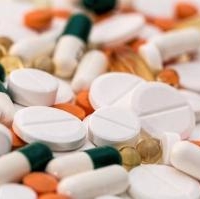
The vitamin pill has become one of modern life’s greatest medicinal shields. It promises to prevent hangovers, boost our immune system, protect us from Alzheimer’s and aid fertility. The list of applications is endless and highly profitable as well. But what if vitamins caused more problems than they solved? A growing body of science argues that the overuse of anti-oxidants is actually creating disease, not preventing it.
COST Action EU-ROS was set in place to cast a light onto this fascinating and controversial area of science. Its aim: to shed a pan European set of perspectives on redox signalling, the process of removing or delivering electrons that happens in every natural chemical reaction that is the trigger-point for disease.
Dr Lars-Oliver Klotz was a Professor in Pharmaceutical Sciences at the University of Alberta, Canada and moved to Germany to take his current position as a Professor in Nutrigenomics at the University of Jena (Friedrich Schiller University) in late 2013. Working on EU-ROS helped him transition from one side of the world to the other with ease. “Whenever you start out in a new place, a major issue is of course to get connected and to find collaboration partners,” he says. “This COST Action was a life-saver in that respect.”
Taking part in this COST Action enabled him to present his research to the members of the Action and get to know researchers from his field of interest, the research on reactive oxygen species/free radicals and their impact on different aspects of metabolism.
The Action was chaired by Dr Andreas Daiber, a Professor in Molecular Cardiology at Mainz University. ” The objective of our COST Action EU-ROS was to bring together a European consortium of multi-disciplinary experts for the research on reactive oxygen and nitrogen species in health (redox signalling) and disease (oxidative stress),” says Dr Daiber. “Our working groups’ objective was to identify sources and targets of reactive oxygen and nitrogen species and exploit these identified structures for the development and application of new drugs.”
Multiple meetings and summer schools culminated in their findings being published in an array of top scientific journals. For Dr Klotz, coming to Germany and getting to know colleagues not only from the region but from all of Europe was the greatest benefit of his involvement. “I established new collaborations that will help me advance my research here even beyond the COST Action,” he says.
